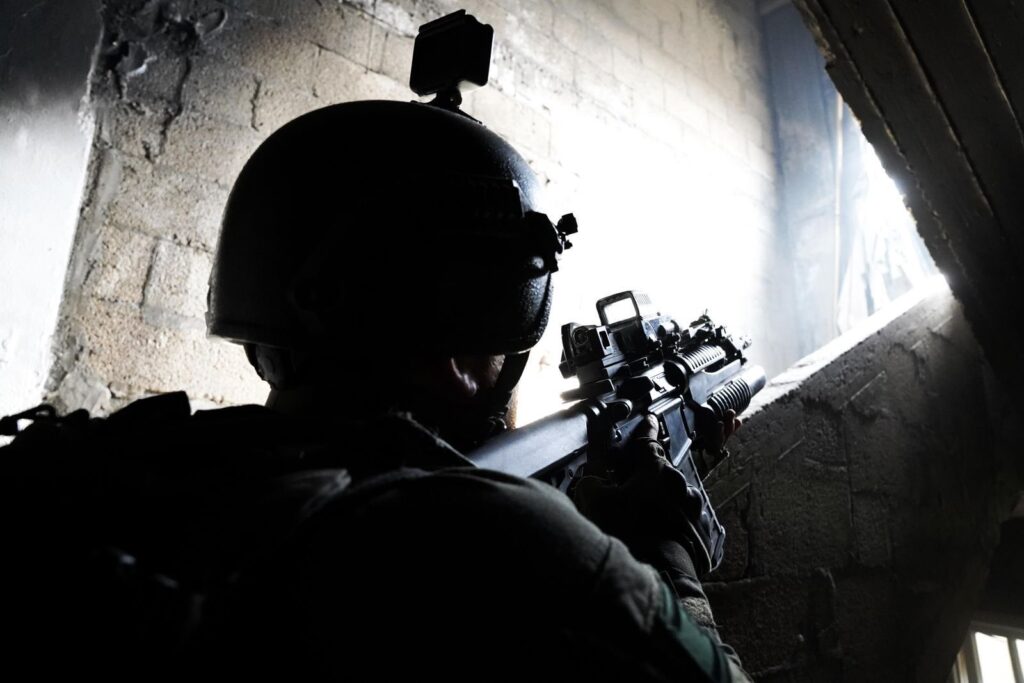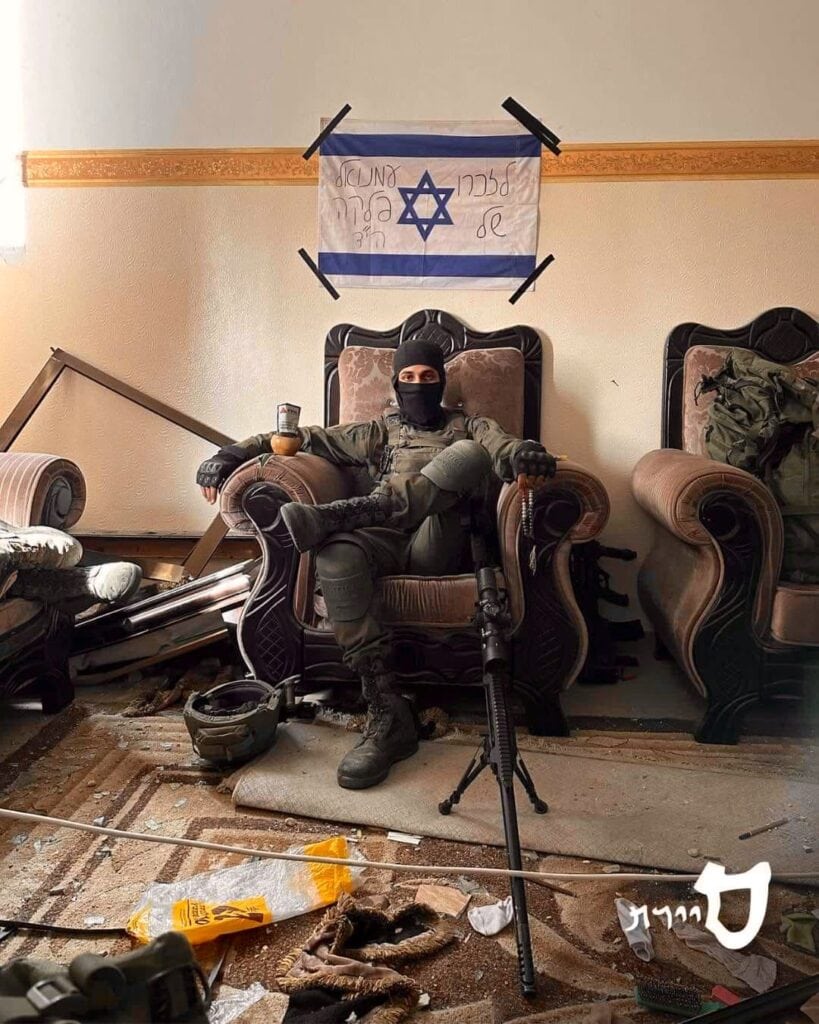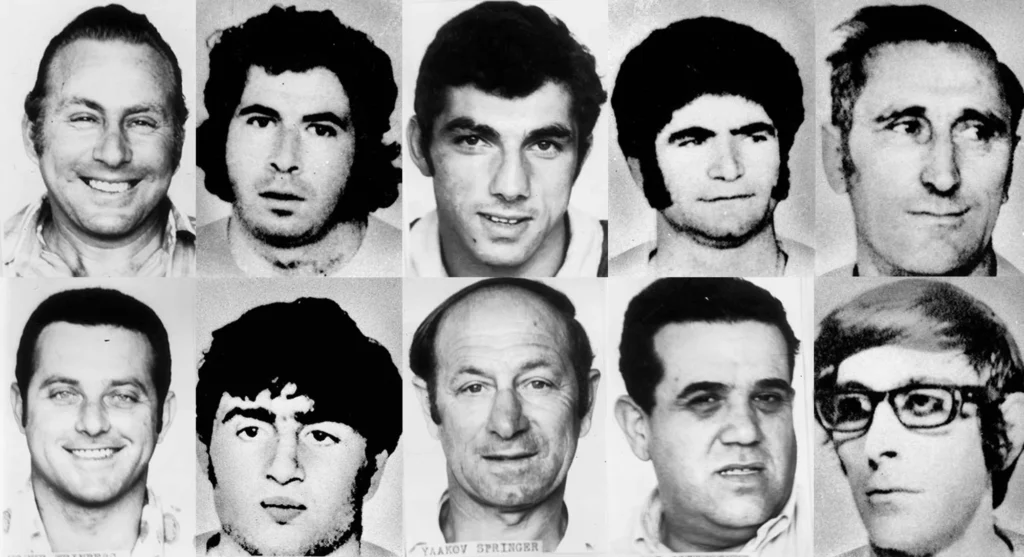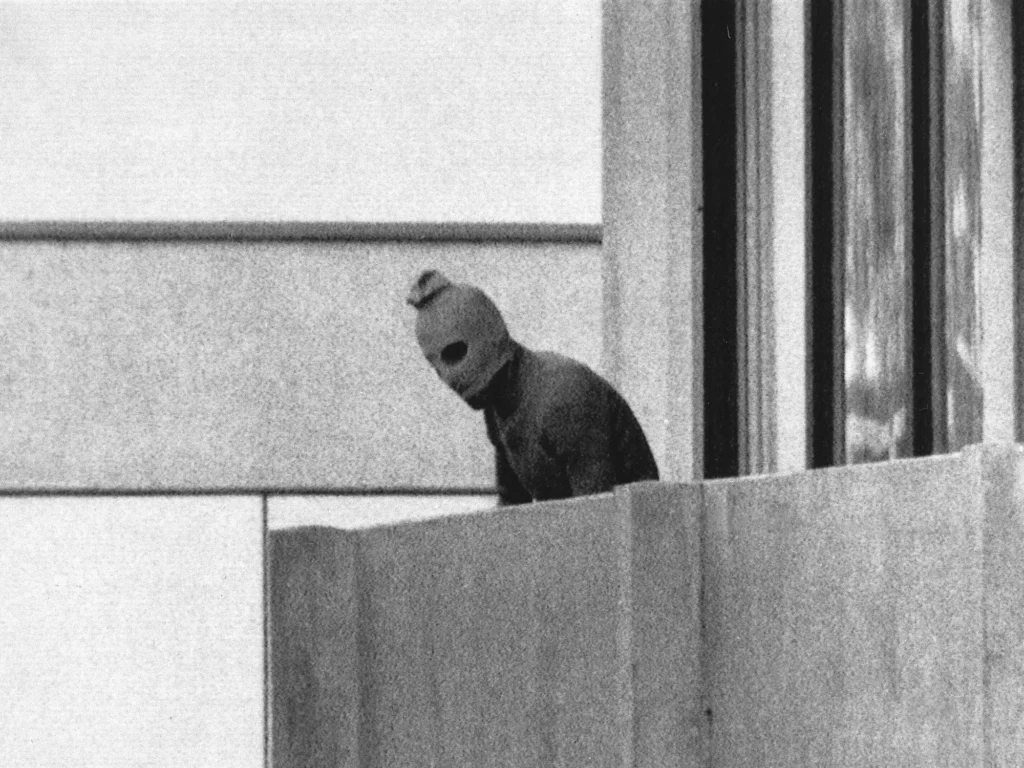1. Introduction
Within the shadows of international espionage and covert operations lies the Kidon unit. A special operations group nestled within the Mossad, Israel’s national intelligence agency. The Kidon has carved out a reputation as one of the world’s most formidable units specialising in targeted assassinations (source). This elite unit operates under a veil of mystery, executing missions with an outstanding level of precision and discretion.
The inception of the Kidon traces back to the early days of the Mossad. It evolved from a need to address immediate threats to Israel’s national security through direct and decisive action (source). Over the years, the Kidon has executed many operations that have significantly impacted Israel’s geopolitical landscape. From eliminating key figures who posed imminent threats to conduct sabotage missions that have derailed potential dangers, the impact of the Kidon’s operations is visible in the records of Israel’s military and intelligence successes.
This article will explore the unit’s history and operational achievements. Also, the ethical, strategic, and tactical dimensions that define its existence. Through this exploration, we aim to show how the Kidon is a pivotal element in Israel’s national security strategy. This element safeguards the nation against external threats through covert operations and strategic interventions.
2. Context, History, and symbols
2.1 Kidon Mottos and Symbols
Similar to Recon Marines, the Kidon uses the equivalent of “Silent, Swift, Deadly”. This phrase serves as the unofficial motto of the unit, encapsulating its operational philosophy. This motto underscores the unit’s commitment to executing missions with utmost discretion and efficiency, leaving no trace behind.
Consistent with the unit’s covert nature, Kidon keeps its symbols shrouded in secrecy. However, there is a general understanding that the symbols reflect themes of vigilance, precision, and protecting Israel’s security interests. The unit’s name itself, Kidon, means “bayonet” or “tip of the spear” in Hebrew. Thus, symbolising its role as a sharp and penetrating force in Mossad’s arsenal against threats to national security (source). The Kidon does not use patches that are visible as operatives conceal their identities to carry out their operations. However, they most likely have a badge of honour for operatives, symbolising their elite status within the intelligence community (source).

2.2 Kidon History
The Kidon unit, established within Mossad’s Caesarea Division in the early 1970s, has played a pivotal role in Israel’s defence strategy. Particularly in executing targeted assassinations against individuals deemed a significant threat to national security. Its formation was a strategic response to increasing threats against Israel, with the unit being tasked with high-stakes operations beyond Israel’s borders.
The Kidon throughout the years has had successful missions, perhaps the most famous mission associated with the Kidon, was Operation Wrath of God (source). This operation targeted individuals involved in the 1972 Munich Olympics massacre, where they killed 11 Israeli athletes. The Kidon’s operatives were instrumental in tracking down and eliminating members of the Black September organisation responsible for the attack.
2.3 Recent History
In recent years, the Kidon has been particularly active in operations aimed at hampering Iran’s nuclear program (source). The unit has received credit for assassinating several Iranian nuclear scientists, significantly setting back Iran’s nuclear capabilities. These operations have demonstrated Kidon’s ability to carry out complex missions in foreign territories, often involving intricate planning and execution to avoid international repercussions.
These missions highlight Kidon’s central role within Mossad and its significance to Israel’s national security strategy. The unit’s operations have not only neutralised threats but also served as a deterrent against potential aggressors. This demonstrates Israel’s willingness and capability to act decisively against its enemies.
The Kidon’s relevance extends beyond the execution of targeted killings; it embodies Mossad’s adaptability and innovation in intelligence operations. The unit achieves success by meticulously planning, undergoing advanced training, and utilising cutting-edge technology. This allows them to execute missions worldwide while minimising collateral damage and political backlash.
By maintaining a shadowy presence and leveraging the element of surprise, the Kidon continues to be one of Mossad’s most effective tools in safeguarding Israel’s security interests. Its operations, often shrouded in mystery, contribute to its mystique and deterrence factor, making it a key asset in Israel’s intelligence apparatus.
3. Organisation
3.1 Organisation structure and financing
The Mossad places the Kidon within its operational framework, specifically under the Caesarea Division, which is responsible for executing covert missions abroad. This placement ensures Kidon’s access to Mossad’s extensive intelligence resources while maintaining the autonomy necessary for its specialised missions.
When The Kidon has to carry out a mission it operates with hit squads with operatives covering four main roles. Reconnaissance, logistics, assistance and assassination. The reconnaissance operative locates the target and studies its routine. The logistics operative determines the best route to use, the safest vehicles for getaway and the operation, where the interception will take place. Their role is essential in facilitating the operation. The assistant operative is the one who is in charge of driving the team and providing support during getaways or assaults. Lastly, the assassin is responsible for carrying out the main part of the operation, the assassination, using any means necessary (source).
The Kidon’s financing, like many aspects of its operation, remains shrouded in secrecy. Also, Mossad’s budget funds the Kidon, which itself is part of Israel’s classified defence budget. This funding supports all aspects of Kidon’s operations, from training and recruitment to the execution of missions.
3.2 Kidon Recruitment and Cooperation
The Kidon recruits individuals with exceptional skills in combat, intelligence, and languages. The unit’s operatives undergo rigorous training and testing to ensure they meet the unit’s stringent requirements. Foreign recruitment occasionally supplements the unit’s operational capabilities with expertise from allied countries (source).
While the Kidon collaborates with other Israeli defence bodies and foreign intelligence services on joint missions, its operational autonomy allows for swift and decisive action against threats. The unit’s connections to other organisations enhance its capabilities and intelligence-sharing networks (source). Moreover, Mossad has made agreements with foreign intelligence services to prevent the deployment of the Kidon in said countries. Most recently, the Mossad agreed with Turkey’s intelligence services that the Kidon would not be deployed on Turkish soil. In exchange, Turkey’s intelligence services will help increase surveillance on Mossad targets in Turkey (source).
The Kidon’s missions are strategically significant, often targeting individuals involved in terrorism or posing direct threats to Israel. The unit’s operations have global implications and are conducted with a high level of precision and discretion to minimise collateral damage and political fallout (source).
4. Equipment
The Kidon is equipped with a specialised arsenal for precision operations and covert missions. Nonetheless, the specific arsenal the Kidon uses is secret and unknown to the public. However, the Israeli Defence Force (IDF) units are known to use weaponry that includes the Tavor TAR-21 assault rifle for close-quarters combat, the Barrett M82 sniper rifle for long-range precision, and the Uzi Pro submachine gun for discreet engagements. They utilise the Spike LR anti-tank missile system and Stinger MANPADS for countering armoured and airborne threats, respectively. In terms of vehicles, they employ the AH-64 Apache helicopter for reconnaissance and Dvora Fast Patrol Boats for maritime operations.
Additionally, they use ITT PVS-14-night vision goggles, MARS Armor ballistic vests, and Harris RF Communications Systems for enhanced visibility, protection, and secure communication during missions (source). The IDF’s special unit Shayetet 13 is equipped with the weaponry mentioned above as well as other more specific weapons specialised to them (source). With high probability, the Kidon utilises a similar arsenal to conduct their missions alongside more specialised equipment and weaponry more useful for assassinations, such as magnetised explosives.
The advanced equipment of the Kidon unit ensures operational effectiveness in executing targeted assassinations and high-stakes operations. With a focus on precision and efficiency, their arsenal, including specialised weapons, vehicles, optics, protective gear, and communication systems, equips them to navigate challenging environments, neutralise threats with accuracy, and maintain seamless coordination during critical missions. These resources are vital for Kidon operatives to carry out their covert tasks with precision and success. (source) (source)

5. Kidon Operations
The Kidon specialises in high-profile operations globally. Specifically, their modus operandi is targeted assassinations and intelligence gathering to safeguard Israeli interests (source). The Kidon describes its primary objective as ensuring Israel’s national security by neutralising threats through covert actions. As is characteristic of Mossad’s elite units, the Kidon is believed to use advanced surveillance, undercover operations, and precision strikes to succeed in their objectives. Seeing as how the nature of the Kidon is secretive, the exact size of the unit is not disclosed. However, estimates believe the Kidon has fewer than 75 operatives (source). In addition, the Kidon reportedly operates with a select group of highly trained operatives, stressing quality over quantity to achieve operational security and effectiveness.

5.1 1972 Munich Olympics Massacre
Operation Wrath of God was Israel’s covert response to the horrific events of the 1972 Munich Olympics Massacre, where 11 Israeli athletes were taken hostage and ultimately murdered by the Palestinian terrorist group Black September. This brutal act not only shocked the world but also marked a turning point in how states dealt with terrorism.
Israel, vowing retaliation and seeking justice for the fallen, launched one of the most ambitious counter-terrorism operations in history (source). The establishment of the Kidon and the use of this unit to carry out assassinations for the protection of national security reached full implementation after the failure of the hostage rescue in 1972. Germany miserably failed in rescuing the Israeli athletes held hostage, with German special forces deeming the mission too dangerous and preferring to abstain from involvement.
The Mossad dispatched its head, Zamir, and a senior Shin Bet official, Victor Cohen were sent to Munich to monitor the situation. They followed closely the failed attempt to rescue the hostages. Moreover, Germany refused the offer to receive assistance from trained Israeli forces, which prevented them from intervening. As a result, they had to witness the deaths of all the Israeli hostages. The inability of German security forces to prevent this tragedy led Israel to believe that they should rely mostly on their own intelligence personnel for security.

5.2 Operation Wrath of God
Then-Prime Minister Golda Meir directed Mossad to track down and eliminate those responsible for the Munich massacre. This operation – Wrath of God – stretched over many years and spanned multiple continents, underlining the global reach and determination of Israeli intelligence (source). The head of Mossad Zamir relied on the commander of the Caesaria Mike Harari who assigned the mission to a number of specialised units including the Kidon (source). Over the following seven years, Mossad successfully assassinated eight members of the Black September group, including the head of the organisation, Ali Hassan Salameh. The assassinations took place in various capitals around the world including Beirut, Rome, Paris, Athens and Nicosia. The Mossad used targeted bombings, psychological warfare, shootings and raids to successfully carry out Operation Wrath of God. (source)
Moreover, the primary targets were members of Black September as well as operatives of the Palestine Liberation Organization (PLO), believed to be directly or indirectly involved in the Munich attack. Its use of assassination characterised the operation to exact revenge and deter future attacks against Israelis and Jews worldwide. Additionally, according to various sources, including a detailed account by The Times of Israel, Mossad conducted a series of covert assassinations across Europe and the Middle East, eliminating key figures associated with the massacre (source).
5.3 Operational Failures
Operation Wrath of God sparked controversy because of its extrajudicial nature and several instances of mistakenly targeting individuals unconnected to Munich. In Lillehammer, Norway, one clear failure of the Kidon was evident when they assassinated Ahmed Boushiki, mistaking him for Ali Hassan Salameh. Boushiki was a waiter of Moroccan origin who resembled Salameh, leading to a massive intelligence failure by the Israeli specialised unit (source). However, it served as a stark warning to terrorist groups about the lengths to which Israel would go to protect its citizens and seek retribution for acts of terror.
Moreover, although the Kidon has been for the most part successful in their operations, one of the most known failures of this unit and the Mossad in general was the failed assassination of Khaled Mashal, chairman of Hamas. Two operatives of the Kidon were supposed to poison Mashal while he was walking in the street in Jordan, although they were successful in poisoning him, Mashal’s assistant realised something was wrong and believed the two operatives posing as Canadian tourists were responsible. The authorities captured and tortured the two operatives, and their accent revealed their true identity as Israelis, not Canadians.
Meanwhile 4 other supporting operatives hid in the Israeli Embassy in Amman. As Mashal’s condition worsened the King of Jordan grew more furious and threatened to sever relations with Israel and to send elite units to the embassy. Ultimately, they summoned Ephraim Halevi, the Israeli ambassador to the EU, and a Mossad doctor accompanied him. The doctor administered a serum to Mashal, which cured him. Israel had to also release Sheikh Ahmed Yassin – Hamas’ spiritual leader – to ensure the safe return of the Kidon operatives. This marked one of the biggest failures of the Kidon which could have altered significantly the geopolitical landscape. (source)
5.2 Subsequent Operations
In addition to Operation Wrath of God, the Kidon has implicated itself in various other operations aimed at disrupting the capabilities of Israel’s adversaries. These have ranged from targeted killings of key figures in hostile organisations to sabotage missions aimed at hindering nuclear proliferation efforts by states considered a threat to Israeli security.
A few of these operations included: the assassination of Imad Morniyeh – Hezbollah operation officer – in February 2008. The targeted killing of the founder of the Palestinian Islamic Jihad movement and the first secretary – Fathi Shakaki – in Malta, 1995. The assassination of Canadian citizen Gerald Ball, in March 1990 in Brussels. Lastly, the most recent targeted killing in January 2010 in Dubai of senior Hamas officer Mahmoud al-Mabhouh (source).
5.3 Targeting Iranian Nuclear Scientists
Furthermore, the Kidon has been involved with deterring the progress of Iranian nuclear proliferation and capabilities through assassinations of Iranian scientists. In 2010, it was believed that the Kidon conducted the assassination of Iranian senior nuclear scientist Masoud Ali-Mohammadi in Tehran. Moreover, Kidon was allegedly responsible for an explosion around the same time in Tehran that seriously injured another Iranian scientist (source). After the second anniversary of Ali-Mohammadi’s death on January 11, 2012, a magnetised explosive assassinated Mostafa Ahmadi Roshan – uranium enrichment expert.
According to Western intelligence Mossad and their specialised units carried this out (source). Most recently, on 27 November 2020, Israel allegedly assassinated Mohsen Fakhrizadeh, the head of Iran’s nuclear weapons program. The Mossad, specifically the Kidon, is believed to be behind the assassination of Mohsen Fakhrizadeh, who was gunned down in Tehran by assassins on a motorcycle.
The operations carried out by Kidon underscore a broader strategy employed by Israel to preempt and retaliate against threats, utilising a blend of intelligence, precision, and lethal force. While much of Kidon’s activities remain shrouded in secrecy, their impact on Israel’s security posture is undeniable.
6.0 The Future of Kidon
The future outlook for the Kidon appears poised for evolution in response to the changing landscape of global security and intelligence operations. As geopolitical dynamics shift, and technological advancements continue to reshape the nature of espionage and covert operations. The Kidon’s role within Mossad and its operational capabilities are likely to adapt accordingly.
Moreover, the events of October 7, 2023, will lead to significant shifts in the landscape of Israeli intelligence operations, particularly in those conducted by Mossad and its elite unit Kidon. The attack by Palestinian militants, as reported by sources such as CNN and Reuters, has not only intensified the security situation but has also likely catalysed a strategic reassessment within Israeli intelligence circles. Following the October 7 events, where Palestinian armed groups launched a coordinated attack against Israel, leading to an escalation in the Gaza Strip, Mossad and Kidon must strategically reorient themselves in order to counteract emerging threats more effectively. This reorientation will likely involve a deeper focus on preemptive intelligence gathering and targeted operations designed to dismantle or disrupt the capabilities of hostile entities (source).
Furthermore, Israel’s response to the October 7 attack includes the formation of new units tasked with specific objectives, such as targeting the commandos behind the assault. This development suggests a future where Mossad and Kidon might further specialise their operational units to address distinct threats, enhancing their precision and effectiveness in high-stakes scenarios (source). Additionally, given the complexity of the threats emanating from Gaza and other regions, Mossad and Kidon are likely to place a heightened emphasis on intelligence sharing and international collaboration. By leveraging partnerships with foreign intelligence agencies, Israel can gain broader insights into regional dynamics, enhancing its ability to anticipate and neutralise threats before they materialise.
6.1 Technological Advances, Scope, Recruitment and Partnership
The Kidon is likely to integrate cyber elements into its operations, leveraging cyber-espionage and disruptive cyber tools. This strategic shift enhances operational flexibility and effectiveness. Moreover, Kidon may broaden its scope to address emerging security challenges, including counterintelligence against cyber warfare. The Debrief has shed light on the Kidon’s operational readiness and adaptability (source).
Furthermore, future recruitment by the Kidon could focus on diverse skill sets and advanced training methodologies. Moving forward the Kidon and Mossad in general may need to form closer ties with allied intelligence agencies for joint operations in an ever more complicated geopolitical landscape.
7.0 Conclusion
In the shadows of international espionage and covert operations, the Kidon unit stands as a formidable force embodying precision, secrecy, and lethal efficiency. Operating within Mossad, Israel’s national intelligence agency, Kidon has earned a reputation as one of the world’s most formidable units specialising in targeted assassinations. The unit’s legacy traces back to the early days of Mossad, evolving from a need to address immediate threats to Israel’s national security through direct and decisive action.
Understanding the history and purpose of the Kidon unit is crucial not only for unravelling the mysteries of Mossad’s operations but also for appreciating the strategic significance of covert actions in safeguarding Israel’s national security interests. As Kidon continues to operate with precision and discretion, its role as a key asset in Israel’s intelligence apparatus remains paramount in countering threats and ensuring the nation’s security in an increasingly complex geopolitical environment.

